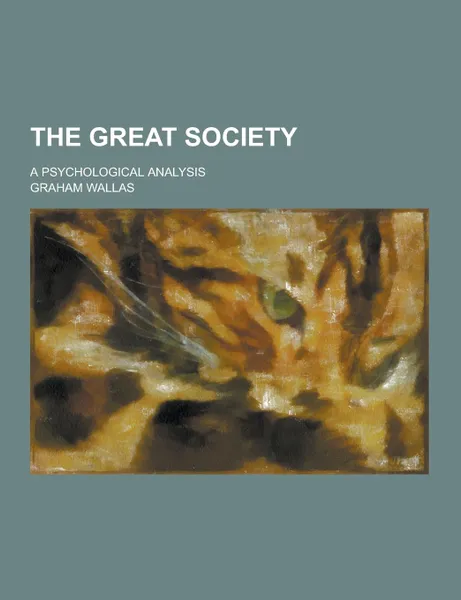The Great Society; A Psychological Analysis 12+
📗 This historic book may have numerous typos and missing text. Purchasers can usually download a free scanned copy of the original book (without typos) from the publisher. Not indexed. Not illustrated. 1919 edition. Excerpt: ... CHAPTER X THOUGHT In each of the preceding five chapters I have tried to keep the practical purpose of my analysis constantly before me. I have asked, not only what is the present state of our knowledge about Habit, Fear, Pleasure, Love, and the rest, but whether an art exists which enables us to use that knowledge for improving the conditions of life in the Great Society. I now propose to consider Thought with the same practical end in view. In Chapter III. I argued that Thought is a true natural disposition. Under appropriate conditions, that is to say, we are naturally disposed to enter into a state of reverie, during which our ideas are so combined and arranged as to produce new mental results. I there also argued that Thought may be independently stimulated, and that it is not, as Mr. McDougall says, a merely subordinate mechanism acting only in obedience to the previous stimulation of one of the simpler instincts. In this chapter I shall ask whether there is an art by which the efficiency of Thought can be improved. Five hundred years ago no one would have had any hesitation in answering, "Yes, such an art of Thought exists; its name is Logic; it was invented by Aristotle; and it is the most important element in the curriculum of the schools a...
Мнения
